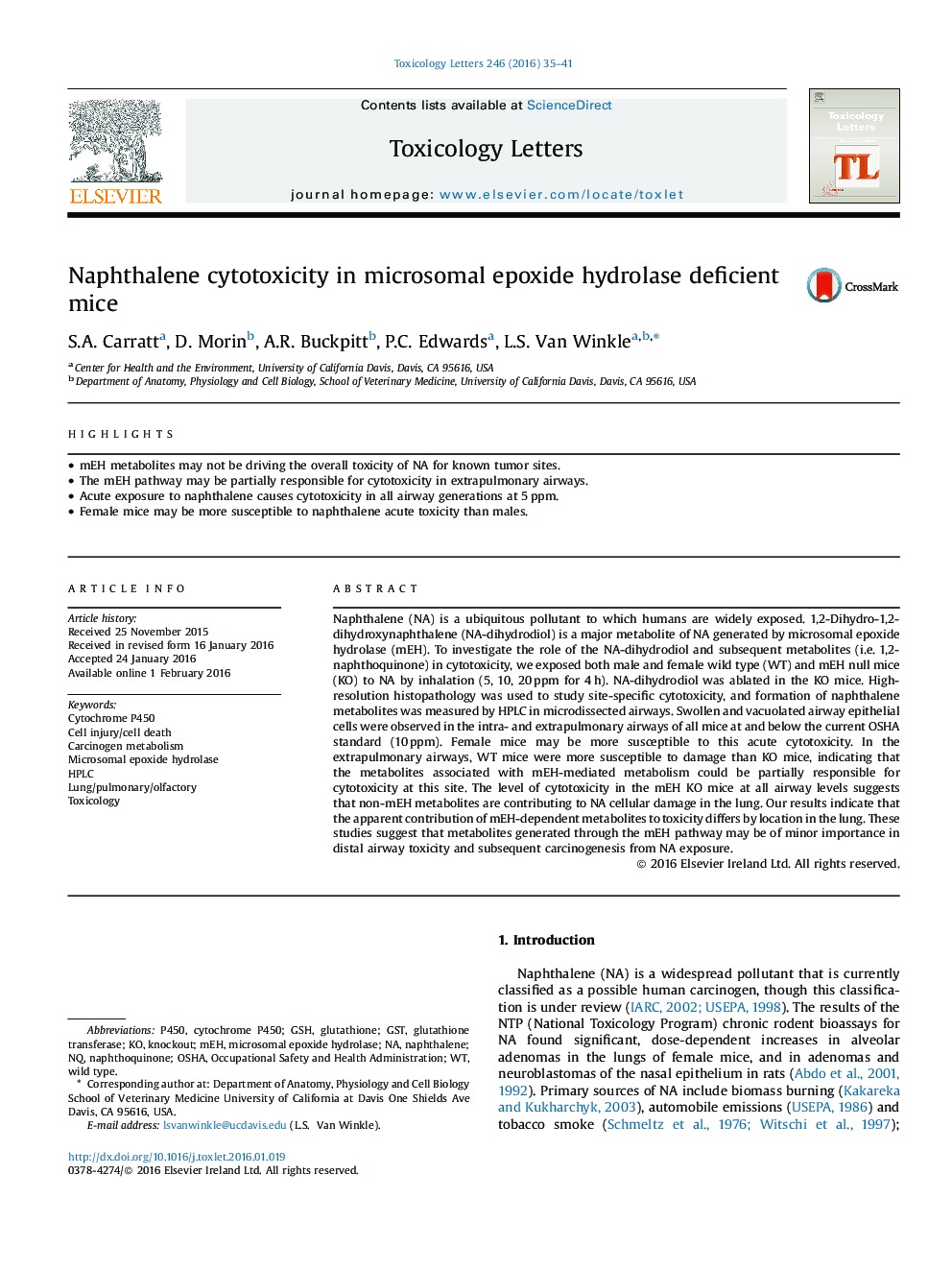| Article ID | Journal | Published Year | Pages | File Type |
|---|---|---|---|---|
| 2598501 | Toxicology Letters | 2016 | 7 Pages |
•mEH metabolites may not be driving the overall toxicity of NA for known tumor sites.•The mEH pathway may be partially responsible for cytotoxicity in extrapulmonary airways.•Acute exposure to naphthalene causes cytotoxicity in all airway generations at 5 ppm.•Female mice may be more susceptible to naphthalene acute toxicity than males.
Naphthalene (NA) is a ubiquitous pollutant to which humans are widely exposed. 1,2-Dihydro-1,2-dihydroxynaphthalene (NA-dihydrodiol) is a major metabolite of NA generated by microsomal epoxide hydrolase (mEH). To investigate the role of the NA-dihydrodiol and subsequent metabolites (i.e. 1,2-naphthoquinone) in cytotoxicity, we exposed both male and female wild type (WT) and mEH null mice (KO) to NA by inhalation (5, 10, 20 ppm for 4 h). NA-dihydrodiol was ablated in the KO mice. High-resolution histopathology was used to study site-specific cytotoxicity, and formation of naphthalene metabolites was measured by HPLC in microdissected airways. Swollen and vacuolated airway epithelial cells were observed in the intra- and extrapulmonary airways of all mice at and below the current OSHA standard (10 ppm). Female mice may be more susceptible to this acute cytotoxicity. In the extrapulmonary airways, WT mice were more susceptible to damage than KO mice, indicating that the metabolites associated with mEH-mediated metabolism could be partially responsible for cytotoxicity at this site. The level of cytotoxicity in the mEH KO mice at all airway levels suggests that non-mEH metabolites are contributing to NA cellular damage in the lung. Our results indicate that the apparent contribution of mEH-dependent metabolites to toxicity differs by location in the lung. These studies suggest that metabolites generated through the mEH pathway may be of minor importance in distal airway toxicity and subsequent carcinogenesis from NA exposure.
